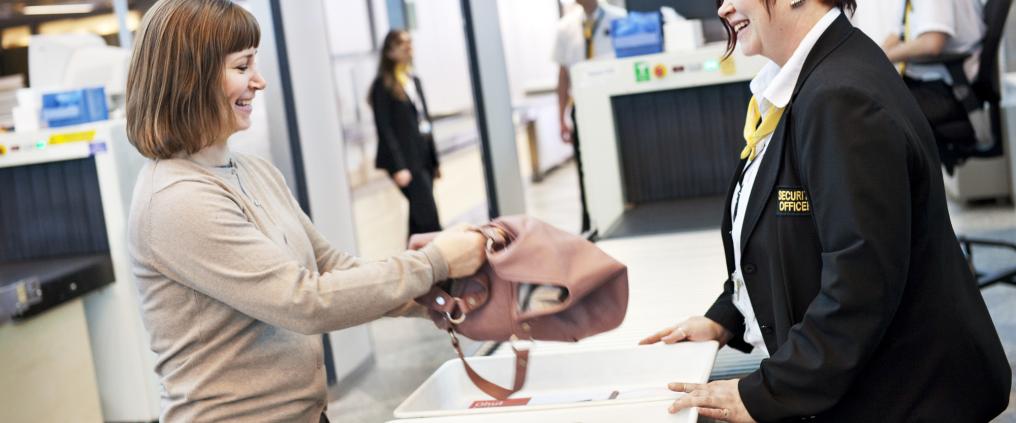For the majority of flight passengers, the security check is the most stressful part of the journey. Standing in line makes your palms sweat, and your mind starts to wonder whether you’ve packed some alarm-triggering items in your hand luggage.
Finavia Security Services Supervisor Joni Pekkanen knows that many have deep-seated preconceptions about security checks. So we wanted to tackle those myths with his help.
Myth #1: A security check takes hours.
Fact: The departure lobby is the most nerve-wracking part of the airport, and the slowly advancing queue to the security check can feel unending. In reality, the average waiting time at security check takes only six minutes at Helsinki Airport!
Even during congested peak hours, queuing takes a maximum of 20 minutes.
“The passengers often feel they are late for boarding because of the security check, as it is the last mandatory procedure before the gate,” Pekkanen says.
“But in fact, with everyone’s cooperation, the actual security check is a very quick operation and takes only a few minutes at most.”
Myth #2: Forbidden items will stop your journey in its tracks.
Fact: According to Pekkanen, many passengers are afraid that they will get into trouble over their hand luggage.
“People are nervous about whether they have packed according to the guidelines and they worry about what will happen to their journey if something prohibited is found,” Pekkanen shares.
However, security officers are there to serve customers and they will not arrest passengers for unintentionally packing prohibited items.
“Questions about packing are always welcome at the security check. If forbidden items are found, the passenger can take these back to be carried in cargo, store them at the airport’s facilities or return the item to their car. The items can even be mailed, providing that the customer has enough time to do this before their flight.”
If none of these options are possible, the item will be kept at security check and be disposed of accordingly.
Having items confiscated at security check won’t prevent a passenger from flying. Any medication needed during travel can be carried in one’s hand luggage.
Myth #3: The metal detector is harmful to one’s health.
Fact: The magnetic field of the metal detectors used at the security check is so weak that it will not cause any health risks even for frequent or daily flyers. Fears of magnetic energy interfering with artificial pacemakers are exaggerated, Pekkanen clarifies.
“I don’t recall a single case of a pacemaker malfunctioning in Finland. If a passenger’s physician has advised him or her to avoid the detector, he or she will be guided past the metal detectors and checked manually.”
Other passengers can also request a manual check, if they fear their health will be compromised by the detector.
Myth #4: “Rubber gloves and bending over” are a part of the security check procedure.
Fact: Although you may have seen this in a Hollywood movie, security check agents will not take passengers aside and perform cavity searches using rubber gloves in hopes of locating hidden contraband items.
Passengers will be taken aside only at their own request, if they prefer the check to be done more discreetly. Officers wear gloves for general hygiene reasons, not for cavity searches.
Moreover, smugglers and drug mules are screened and apprehended by customs and police officers, not by security check personnel.
“Of course, we cooperate with law enforcement and will let them know if we suspect or detect illegal activity,” Pekkanen says. “But most of all, security officers are there to remove items and substances which could cause danger to passengers both at the airport and on the aircraft.”
Read more about security check.



